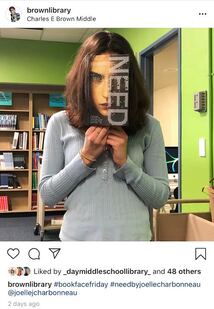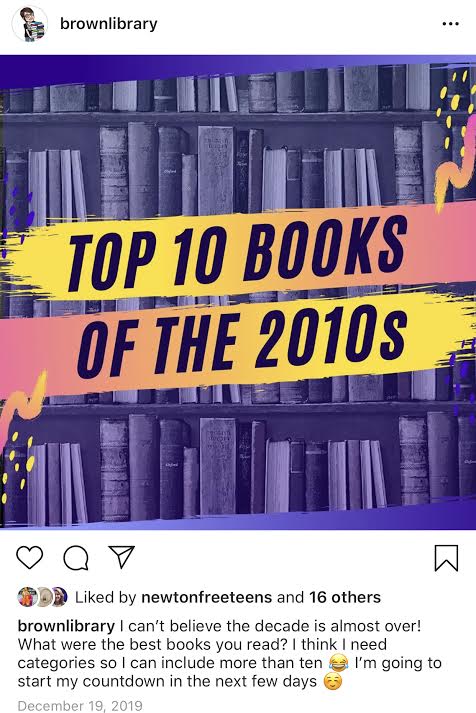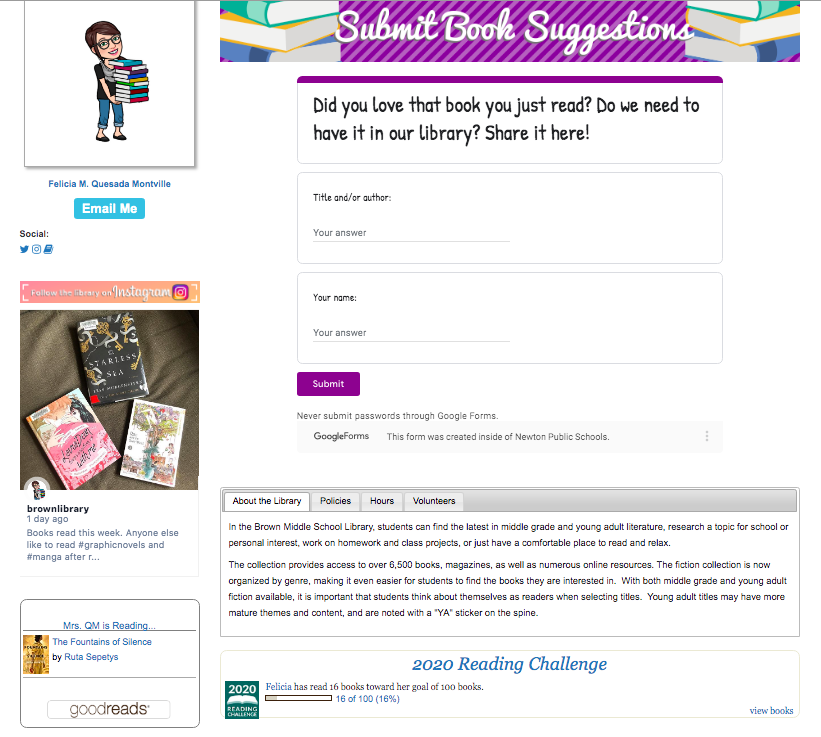The debate around the impact of social media is fiercest in regards to its use by tweens and teens. The Wait Until 8th pledge, a parent commitment to no smartphones before 8th grade, is gaining traction as the negative impacts of smartphones on interpersonal relationships, academics, and more have come to light. At the heart of many of these arguments is access to social media. Cyberbullying, sleep disruptions, and increased anxiety and depression are real risks of social media use, especially when use is excessive. But regardless of the risks, social media is here to stay — the power of connection and the spread of information is too strong. Therefore, we should take advantage of this powerful tool to forge connections with both students and stakeholders.
Why connect with students through social media?
I just finished telling you about the risks of excessive social media use, which can be especially harmful to tweens and teens, so why would I now encourage you to use social media to connect with them? Firstly, it’s a professional responsibility to model appropriate use of technology. AASL Standard III.B states, “school librarians demonstrate the importance of personal, social, and intellectual networks by: 1. Modeling the use of a variety of communication tools and resources. 2. Cultivating networks that allow learners to build on their own prior knowledge and create new knowledge.” What better way to reach this standard than through the visible effective use of social media?
Secondly, I am a firm believer of meeting students where they are. We may wish to delay or lessen student interactions online, but the fact of the matter is, that’s where many of our students already spend a great deal of their time. Rather than play the part of disconnected adult who just doesn’t get social media, we should meet students online and take on the role of model cyber-citizen.
Why connect with stakeholders through social media?
It’s been argued that school library graduate programs should include coursework on sales and marketing because so much of the school library teacher’s role is selling our services and convincing others of our worth. And there’s a reason most major companies are now on social media -- it’s an incredibly powerful marketing tool. Through social media connections, we can instantly update teachers, administrators, and the larger school community about happenings in the library. While you may already promote the library and your work through a monthly or quarterly newsletter, maintaining a regular presence online keeps your stakeholders updated throughout the year.
While social media will never replace the face-to-face meeting with your administrator or your attendance at a grade level department meeting, effectively using social media will enhance the work you already do. Furthermore, as technology leaders, we aren’t only models for our students, but also for our teachers, and we should model appropriate and effective use.
How can you use social media effectively?
I keep talking about using social media effectively because disingenuous posts to a limited audience aren’t going to get you anywhere. But how can you be effective? And what does being effective even mean? Well, it isn’t about likes or the number of followers you have. To me, effective social media use is purposeful and fosters genuine connections. There are many ways to get there, but these essential steps will help you be successful.
Choose Your Platform
While you need to identify a platform your students and stakeholders are actually using, finding a platform you are comfortable using is equally important. Upon my move to the secondary level, I immediately started an Instagram account for my new school library. I enjoy using Instagram in my personal life, and I saw other library teachers in my district use it effectively, even at the elementary level. I also stepped up documentation of my reading on Goodreads, which has been a social and easy way to promote books and reading. Once established in my school, I surveyed students, seeking their feedback about the platforms on which it would be best to connect. Instagram was still the clear winner for my students, but that may differ depending on your demographics.

Vary Your Content
Determine what information you want to communicate to your audience and how it is best shared. A photo sharing app like Instagram make visuals the primary source of information, but not the only source. Captions and hashtags are important to inform and engage your audience. They can also help you generate content — take #shelfies of students with check outs, snag pictures of students reading to share with #caughtreading, and get creative with #bookfacefriday. Ensure that you follow your district’s policy for posting student photos or work, covering faces or other identifying information when needed.
Take advantage of the different functionalities available, such as the News Feed versus Stories in Instagram. For example, I post photos of books I’m reading on my Instagram Feed (#currentlyreading) and use the interactive features of Instagram Stories to poll students, pose trivia questions, and more. You can also use tools like Canva and others to create appealing graphics for text-based updates.
Cultivate Connections
While effectiveness isn’t directly determined by the number of followers you have, it’s important to embrace the social part of social media. Start by making connections within your department, school, and district. Following others online is a great start, but interacting with posts through comments and discussion is key to cultivating deeper connections. Additionally, commenting on and sharing each other’s posts is a great way to model appropriate online interactions to students following.
Go beyond your district and connect with librarians and educators around the world — it’s easy to expand your professional learning network while connecting with students and stakeholders. Most social networks suggest users to follow these days, often based on tags and users you are already following. If you’re still looking for more connections, see who others are following to find users that add to your network.
With students, being genuine is key. I promote my library Instagram during orientation in September — with a flexible schedule, it’s a great way to keep up with what is going on in the library — but otherwise, it doesn’t come up often. I may joke, “are you following the library yet!?” when I overhear conversations about “Insta,” as they are apt to call it, but students seem to appreciate that I’m not pushy about connecting with them online. When they do follow, I respond to comments and work to maintain those genuine connections.
Be Visible
Visibility and cultivating connections go hand-in-hand, but taking your social media beyond the platform itself is crucial to using it effectively. Start by adding your social media to your email signature. Goodreads provides a widget to share what you’re currently reading, and it automatically updates itself in many email apps. In addition to what I’m reading, I include a link to the library Instagram.
Link your social media accounts to facilitate sharing across platforms. You may prefer to foster connections in one platform over another, but don’t discount the value of sharing your posts in multiple places.
Finally, highlight your social media through your library website. While the platform itself may not provide a widget or feed to add to your site, there are outside tools like SnapWidget that make it easy to do so. Although many of my students are too young for Instagram, they still see the photos I share through the library website. Additionally, Goodreads provides other widgets for sharing your reading challenge and books recently read.




